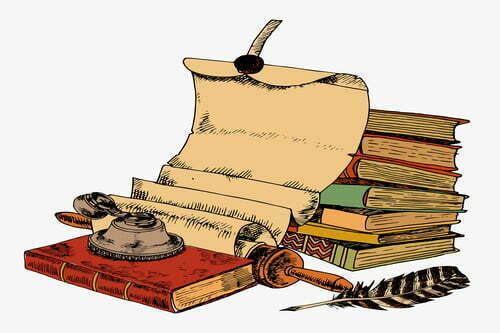Table of Contents
What is History?
History is the study of the past by determining and ordering facts. It also includes the study of people, behaviors, actions, and more. This subject not only talks about our ancestors but also helps us debate our existence. The study revolves around our political systems, society, economic conditions, and cultural conditions.
Scope of history
The scope of history is subjected to constant change. The world was divided into several units based on their social, political, and cultural status in the past. Countries were not well informed about one another. In the present world, due to the industrial revolution, better communication, and transportation, the gap between the different countries is less and has brought people closer.
With the numerous discoveries across the globe, the scope of history has widened. The study of history has changed and is not just confined to political events anymore. History is becoming more and more interesting as the study emphasizes collections of source materials and the adoption of scientific, analytical, and critical attitudes towards their assimilation and explanation.
The ultimate goal of studying history is to broaden students’ vision, provide intellectual satisfaction, and develop an individual’s horizon. It enhances one’s memory, imagination, and logic, giving insight into the human mind. The bigger purpose of studying history is to develop a feeling of unity and international understanding among the people.

Who is the Father of History?
Herodotus is commonly called the father of history. He was the first Western historian and an exemplary ancient Greek historian and author. He was called a “storyteller” by a few scientists who believed he made things up in his mind. Herodotus was an avid traveler; he visited and wrote about places like Egypt, Libya, Persia, and other countries. The first book he wrote was ‘The Histories of Herodotus.’
Herodotus investigated the causes of past events and gave a narrative to them. He wrote about the wars between Greece and Persia. His work also included Greek geography, customs, and political systems.
Not only that, he gave lengthy descriptions of the social and religious traditions of people in other parts of the world. In addition, he spoke about natural and man-made wonders, such as the walls of Babylon and the pyramids in Egypt. He wrote interestingly and caught the attention of his readers.
Herodotus faced early criticism for his work, but the archaeological evidence later proved that his studies were valid and accurate. Herodotus and his works are, to date, considered a reliable source for providing relevant information on the ancient world.
Quotes by Herodotus
- “The worst pain a man can suffer is to have insight into much and power over nothing.”
- “Some men give up their designs when they have almost reached the goal; While others, on the contrary, obtain a victory by exerting, at the last moment, more vigorous efforts than ever before.”
- “He is the best man who, when making his plans, fears and reflects on everything that can happen to him, but in the moment of action is bold.”
- “No one is so senseless as to choose of his will war rather than peace since in peace the sons bury their fathers, but in war, the fathers bury their sons.”
The benefits of studying history
A deeper understanding of history can help entire societies and individuals. Some of the benefits are-
1. Understanding the vast world
When you know history, you know different aspects of life. You can learn about past societies, their systems, ideologies, technologies, and more through history. Not only that, but it also helps us understand how things have evolved and changed. Knowing the rich history of the entire world allows us to get a detailed picture of where we stand today.
2. Makes you appreciate the differences
History encourages a deeper understanding of difference. It helps you learn about diverse cultures and respect them. One must know the way of living of our ancestors and how they interacted with other communities. In a modern world where inclusivity is embraced irrespective of the background, it is crucial to understand how the societies in the past have integrated and led to the improvement of humanity.
3. Understanding identity
History provides us with a sense of identity. Historians have told us stories about different countries, families, and groups. When we know how they developed over time, we understand how it will shape the future. History has contributed to where we are today. It helps us in establishing our own identity.

4. Become inspired
The historical stories act as a source of inspiration. History remembers heroic acts of people, events, and more. History motivates you and inspires you. It helps you understand present-day issues and makes you ask questions as to why things are the way they are. It lights up children’s imagination and spurs them on to do great things.
5. Embrace change
History teaches us that change is inevitable and continual. By studying history, people see and get the reasons behind the changes. These changes include social, political, and cultural changes.
Key Takeaways
- Studying history will ensure that you are aware of things that happen around you.
- It will also offer you a more rounded academic skillset and an improved thinking ability as a student.
- The subject not only teaches you about the past but also puts light on the present and gives you a glimpse of the future based on the progress that humanity makes.
- The Father of Modern History, Bishop William Stubbs, strongly believed that learning ancient history is crucial and will prepare you for studying modern history. His writing style was impeccable, and he gained appreciation as an eminent historical scholar. Schools even teach his extensive work to students.
- Thucydides was the father of scientific history due to his writing methods. He maintained strict standards, included the testimony of witnesses in his work, and narrated his own experiences as an Athenian general during the war.
- While it is debatable, History is believed to be a science because it pursues its techniques to establish and interpret facts.
We hope you enjoyed reading this blog. In case of any queries, reach out to us or drop a comment below!
Liked this Blog? Read more: Top 7 most iconic fictional characters of all time
FAQs
Q1. What is the best way I can learn and remember history?
Answer- The best way to study history is by following the chronology of events. You must find a connection between each event and focus on the most valuable information. Watching historical movies and reading historical books can be very helpful.
Q2. What are some exciting career options if I have a History degree?
Answer- Some interesting career options you can explore with this degree are Archaeology, Museology, Archivists, Teachers, Civil services, etc.
Q3. What is Natural history?
Answer- Natural history is the study of organisms, including animals, fungi, and plants, in their natural habitat. It involves observing, examining, and carrying out experimental methods to find out details.






